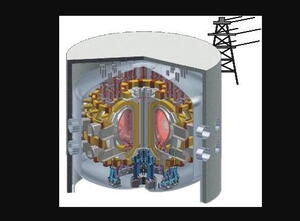Preparing the ground for DEMO
On 29-30 September, EFDA welcomed nearly one hundred scientists and engineers for a technical meeting on the status of DEMO achievements under EFDA. The attendees represented 17 European laboratories, EFDA, the European Domestic Agency for ITER (F4E), and the European Commission as well as some industrial enterprises.
The meeting was hosted at the Max Planck Institute for Plasmaphysics in Garching. The researchers defined the next steps that should be undertaken to prepare the ground for a DEMO conceptual study. They also provided input for the newly formed DEMO advisory group under the CCE-FU (Euratom Consultative Committee on Fusion) and F4E. The actual status of research in Europe with respect to DEMO was discussed, focussing on the following topics: DEMO objectives, plasma performance and plasma control requirements, power handling at the wall and the divertor, materials, heating and current drive, diagnostics, tritium self sufficiency, balance of plant and reliability, and maintenance and remote handling. The complex subject of integrating the various individual systems in DEMO as a whole was specifically emphasized.
It became clear that the mission of DEMO needs further consideration. While it is clear that DEMO will be a demonstrating device, bringing all technologies to the level of performance, reliability and efficiency required for a reactor, some question require further assessment. Should the supply of electricity to the public grid be a dominant criteria in the design of the plant? While steady state plasma operation should remain an ultimate goal, is this feasible at the stage of DEMO? Or should DEMO operate in very long plasma pulses, but with continuous delivery of electricity?
Another aim of the meeting, namely to foster close cooperation between scientists and engineers, and between engineers of various fields, was fully achieved. With a considerable percentage of the participants being engineers, attendees pointed out the truly positive collaborative atmosphere of the meeting.
All presentations given at the meeting will be made available on the EFDA website.


